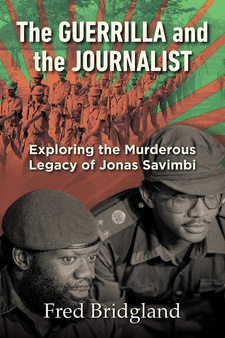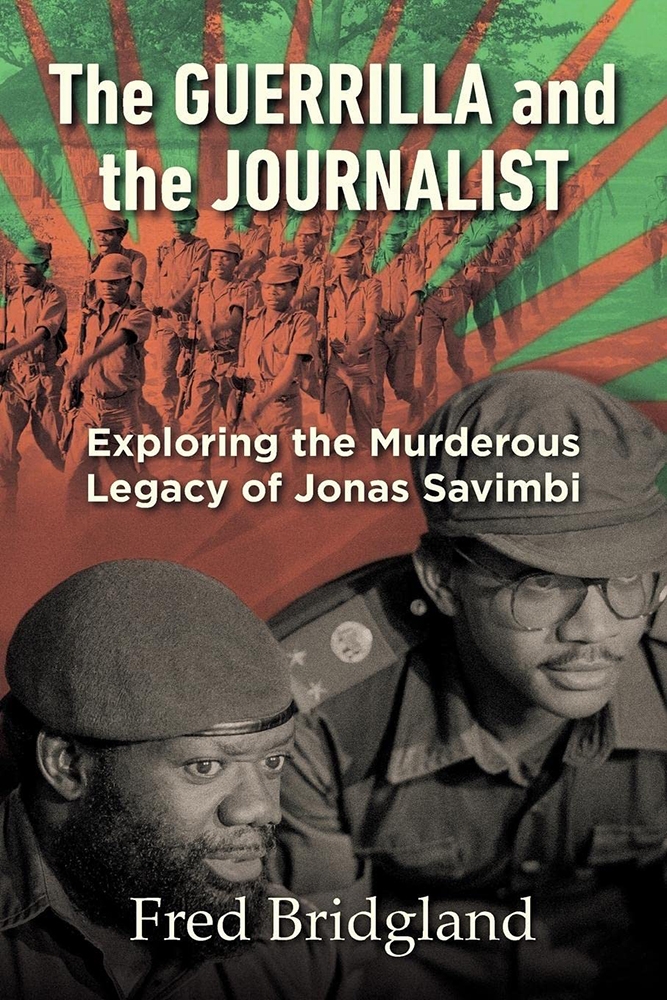The Guerilla and the Journalist. Exploring the Murderous Legacy of Jonas Savimbi, by Fred Bridgland

The Guerilla and the Journalist. Exploring the Murderous Legacy of Jonas Savimbi, by Fred Bridgland. Jonathan Ball Publishers South Africa, Delta Books. Johannesburg-Cape Town, South Africa 2022. ISBN 9781928248125 / ISBN 978-1-92-824812-5
The Guerilla and the Journalist. Exploring the Murderous Legacy of Jonas Savimbi, by Fred Bridgland, who has written several books, including Quito Cuanavale: 12 Months of War that Transformed a Continent (2017) and Truth, Lies and Alibis: A Winnie Mandela Story (2018).
Cuban blitzkrieg (January-February 1976)
I watched the fleeing guerrillas assembling in a small settlement, Gago Coutinho, near a tributary of the mighty Zambezi River and about 50 kilometres from the border with Zambia. The exhausted UNITA fighters' war to take power in Angola, a newly independent former colony of Portugal, was over. A Soviet-backed Cuban military blitzkrieg was approaching from the west. There was no way the lightly armed Africans could resist the war-planes, tanks, armoured cars and heavy artillery of Fidel Castros advancing warriors. The Cubans had begun arriving in Angola, potentially the richest country in Africa, by sea and air from Havana in August 1975 in support of another liberation group, the Marxist-Leninist MPLA. Both UNITA (the National Union for the Total Independence of Angola) and the MPLA (the People s Movement for the Liberation of Angola) had waged war for decades against the Portuguese, who quit their five-centuries-old colony in early 1975. An agreement to hold pre-independence multi-party elections collapsed and quickly descended into civil war. On 30 April 1975, as the last American helicopter left Vietnam, an irresistible new window of opportunity had opened in Angola for the Soviet Union in tandem with its ally, Cuba. One year earlier, on 25 April 1974, there had been a coup in Portugal which overthrew 50 years of right-wing dictatorship.2 Young left-wing Portuguese officers quickly proclaimed the right of Angola to independence. With the US crippled by the Vietnam debacle and President Richard Nixon's resignation over the Watergate scandal, Moscow saw and seized the opportunity for a further international gain in an assets-rich country strategically placed immediately to the north of the South African-ruled territory of South West Africa and apartheid-ruled South Africa itself. Moscow supplied the MPLA with US$6 million worth of Soviet weapons in one four-month period following the Portuguese coup: hundreds of millions more followed. I was Reuters' Central Africa correspondent, based in Zambia with my young family, at the time. I had flown into Gago Coutinho from Zambia on 7 February 1976 aboard a battered old twin-engine Fokker Friendship to chronicle the defeated guerrilla army s final days. It was my fourth reporting journey in five months into guerrilla territory. This flight was hair-raising. Cuban warplanes were in action and the lumbering Fokker was an easy target. It was meant to be the last plane out of Angola for the leaders of UNITA before their followers were crushed by the Cubans. Another Fokker, bringing weapons from Zaire, had recently been destroyed on the ground by four Cuban MiG-21 fighter jets. Some 4 000 fighters in battledress milled around the Gago Coutinho landing strip as reports poured in of columns of Cuban tanks and armoured cars, supported by MPLA infantry, advancing from the north and west. I watched as Jorge Sangumba, UNITAs efficient and articulate foreign secretary, who had flown with me from Zambia, fell into conversation with Jonas Savimbi, UNITAs leader. Savimbi was a charismatic, swaggering 41-year-old, trained militarily and ideologically in Mao Zedong s China. He had led his guerrillas since 1966 in the fight against the Portuguese. Savimbi had a legendary reputation among the tribespeople of central and southern Angola. [...]
This is an excerpt from The Guerilla and the Journalist. Exploring the Murderous Legacy of Jonas Savimbi, by Fred Bridgland.
Title: The Guerilla and the Journalist
Subtitle: Exploring the Murderous Legacy of Jonas Savimbi
Author: Fred Bridgland
Genre: War memoirs
Publisher: Jonathan Ball Publishers South Africa
Imprint: Delta Books
Johannesburg-Cape Town, South Africa 2022
ISBN 9781928248125 / ISBN 978-1-92-824812-5
Softcover, 15 x 23 cm, 320 pages, some b/w photos, 1 map
Bridgland, Fred im Namibiana-Buchangebot
The Guerilla and the Journalist: Exploring the Murderous Legacy of Jonas Savimbi
The Guerilla and the Journalist: Exploring the Murderous Legacy of Jonas Savimbi.

